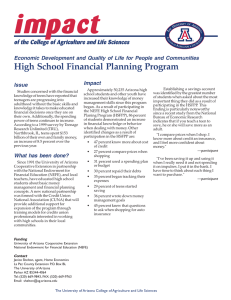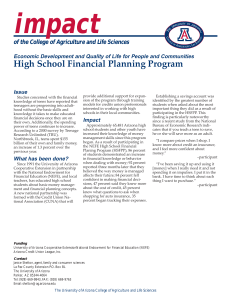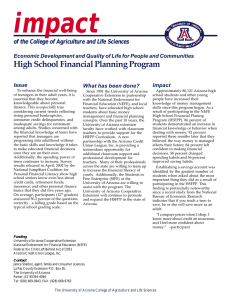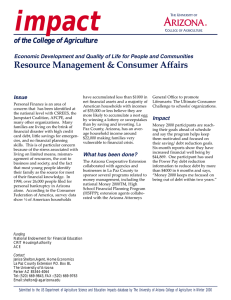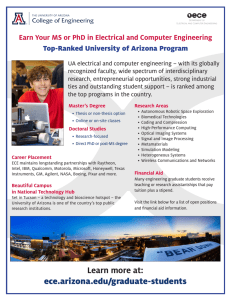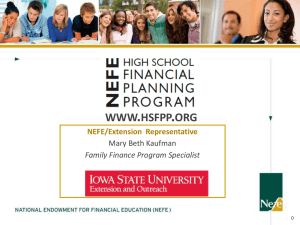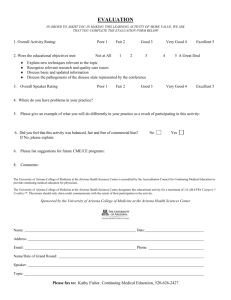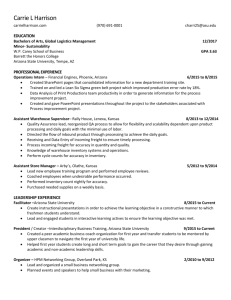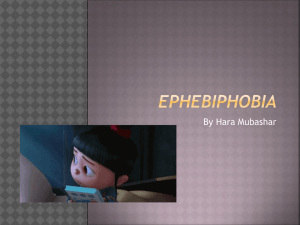impact of the College of Agriculture Issue
advertisement
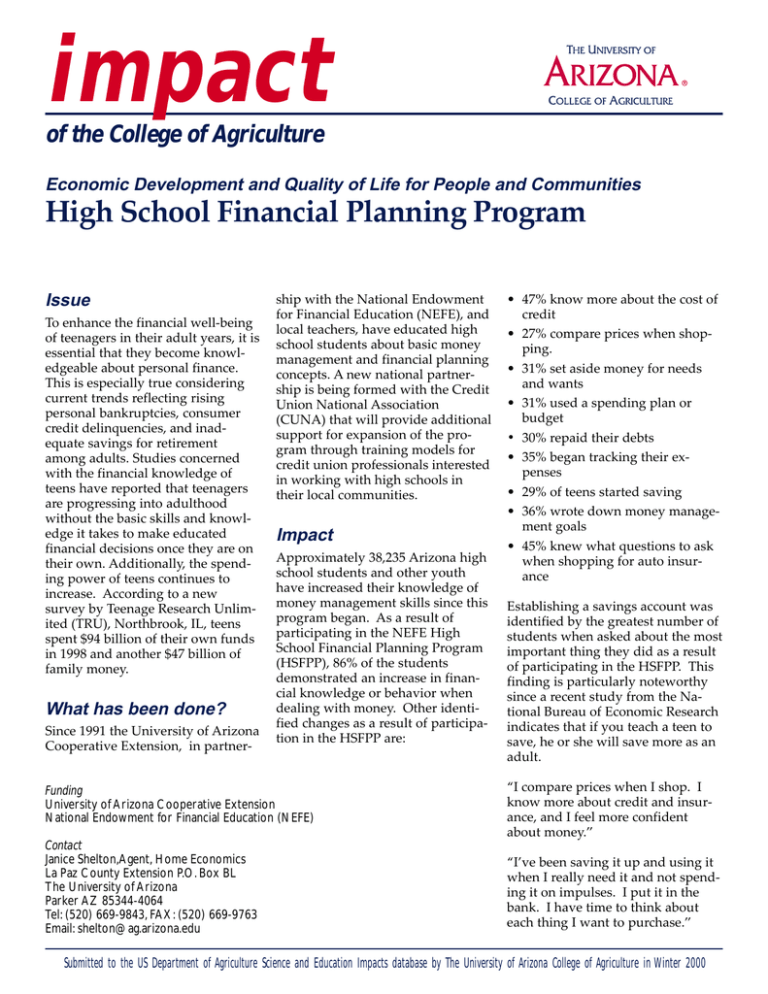
impact of the College of Agriculture Economic Development and Quality of Life for People and Communities High School Financial Planning Program Issue To enhance the financial well-being of teenagers in their adult years, it is essential that they become knowledgeable about personal finance. This is especially true considering current trends reflecting rising personal bankruptcies, consumer credit delinquencies, and inadequate savings for retirement among adults. Studies concerned with the financial knowledge of teens have reported that teenagers are progressing into adulthood without the basic skills and knowledge it takes to make educated financial decisions once they are on their own. Additionally, the spending power of teens continues to increase. According to a new survey by Teenage Research Unlimited (TRU), Northbrook, IL, teens spent $94 billion of their own funds in 1998 and another $47 billion of family money. What has been done? Since 1991 the University of Arizona Cooperative Extension, in partner- ship with the National Endowment for Financial Education (NEFE), and local teachers, have educated high school students about basic money management and financial planning concepts. A new national partnership is being formed with the Credit Union National Association (CUNA) that will provide additional support for expansion of the program through training models for credit union professionals interested in working with high schools in their local communities. Impact Approximately 38,235 Arizona high school students and other youth have increased their knowledge of money management skills since this program began. As a result of participating in the NEFE High School Financial Planning Program (HSFPP), 86% of the students demonstrated an increase in financial knowledge or behavior when dealing with money. Other identified changes as a result of participation in the HSFPP are: • 47% know more about the cost of credit • 27% compare prices when shopping. • 31% set aside money for needs and wants • 31% used a spending plan or budget • 30% repaid their debts • 35% began tracking their expenses • 29% of teens started saving • 36% wrote down money management goals • 45% knew what questions to ask when shopping for auto insurance Establishing a savings account was identified by the greatest number of students when asked about the most important thing they did as a result of participating in the HSFPP. This finding is particularly noteworthy since a recent study from the National Bureau of Economic Research indicates that if you teach a teen to save, he or she will save more as an adult. Funding University of Arizona Cooperative Extension National Endowment for Financial Education (NEFE) “I compare prices when I shop. I know more about credit and insurance, and I feel more confident about money.” Contact Janice Shelton,Agent, Home Economics La Paz County Extension P.O. Box BL The University of Arizona Parker AZ 85344-4064 Tel: (520) 669-9843, FAX: (520) 669-9763 Email: shelton@ag.arizona.edu “I’ve been saving it up and using it when I really need it and not spending it on impulses. I put it in the bank. I have time to think about each thing I want to purchase.” Submitted to the US Department of Agriculture Science and Education Impacts database by The University of Arizona College of Agriculture in Winter 2000
